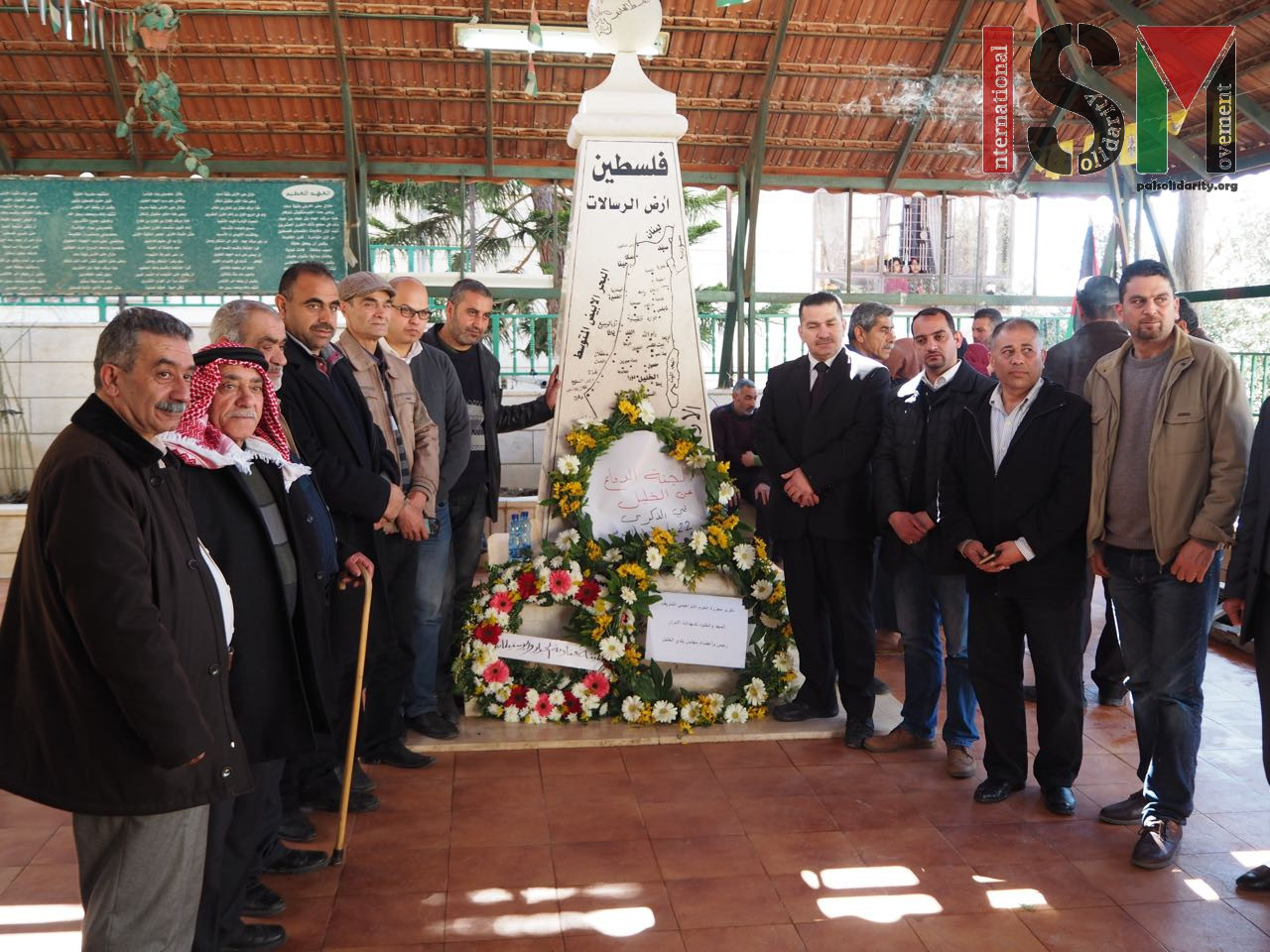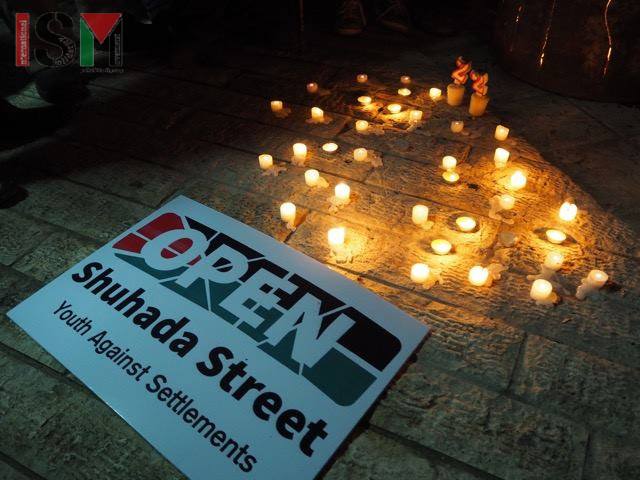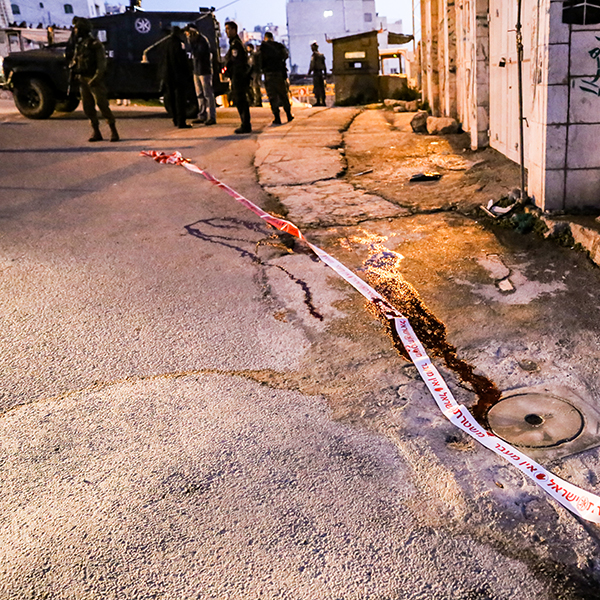Tag: Settlers
-
Wreath-laying in commemoration of Ibrahimi mosque massacre
25th February 2016 | International Solidarity Movement, al-Khalil team | Hebron, occupied Palestine 25 February 2016 marks the 22nd anniversary of the 1994 Ibrahimi Mosque massacre in occupied al-Khalil (Hebron). In commemoration of the Palestinians killed in this massacre, the Hebron Defense Committee (HDC) organised a wreath-laying at the martyrs cemetry. Baruch Goldstein, an Israeli…
-
Aggressive settler interrupts nonviolent commemorative event hosted by Youth Against Settlements
24nd February 2016 | Youth Against Settlements | Hebron, occupied Palestine Notorious settler Anat Cohen interrupted a peaceful movie screening, which was hosted by Youth Against Settlements to commemorate the victims of the Ibrahimi Mosque Massacre in 1994. Every night, Palestinians gather around a bonfire in the Salaymeh neighborhood of occupied Hebron to keep watch…
-
Children face fear and threat of violence after young woman shot in Hebron
22nd February 2016 | International Solidarity Movement, al-Khalil team | Hebron, occupied Palestine A day after 21-year old Yasmin al-Zarou was gunned down by Israeli forces when passing the Salaymeh checkpoint, many of the children were forced to walk right past where she had layn on the ground bleeding – where her blood is still…



